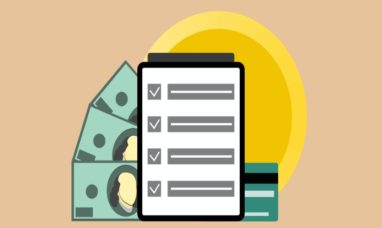-
-
- Most lenders require borrowers to pass a credit check.
- Low-income individuals may be able to access government loans.
- Credit unions also offer affordable borrowing options.
-
If you’re one of those seniors and suddenly find yourself in need of a large sum of money, you might wonder if there’s a reasonable way to borrow money to get you through the crisis.
Before making a loan, most lenders demand proof of income from borrowers and may also want to run a credit check. Continue reading to learn about your options for obtaining affordable, lower-interest loans, even if you’re a senior with a limited retirement income or have a credit history with some blemishes.
What Money-Lending Options Do You Have?
Senior citizens who need to borrow money have a variety of options. Do you only require a small sum of money for a brief time? If so, a credit card could satisfy your requirements. As an alternative, installment loans typically have better interest rates for borrowing for longer. Numerous lenders offer installment loans. They were borrowing money from your bank makes a lot of sense if you’re like most people. Additional options include peer-to-peer lenders, credit unions, and subprime lenders who focus on customers with bad credit or default histories.
Why Is Obtaining Credit Harder for Older Adults?
Getting credit may be challenging if you’re a retiree who isn’t working anymore and you have no income or a minimal income. You are seen as a higher risk by lenders. In addition, due to the risks associated with aging, banks may be reluctant to grant you a longer-term loan if you are over a certain age. Older borrowers may find it more difficult to repay a loan because they are more likely to have expensive medical needs or health issues. Although banks cannot discriminate against customers based solely on their age, risk assessment algorithms may not view your affordability favorably if you frequently spend a lot of money on prescription drugs or medical care.
Can You Borrow Money Without a Credit Check?
Before they give you a loan, most lenders prefer to run your credit, but this is only sometimes the case. Some lenders are more tolerant and may permit you to obtain a loan after only a brief identity check. Look for government loans, loans from nonprofit organizations, or subprime lenders willing to work with a wider variety of borrowers if you’re a senior who has experienced financial difficulties in the past or you’re living on a lower income.
Low-Interest Loan Options for Seniors
In Australia, a variable-rate personal loan carries an average interest rate of 14.41%. The interest rate on a fixed-rate loan is 12.42 percent. Subprime borrowers typically receive loans with rates much higher than this. People with steady incomes and good credit histories can access loans with interest rates as low as half of the average at the other end of the market. Seniors looking for low-interest loans should shop around and carefully weigh their options. Even those with relatively modest incomes can access affordable loans thanks to government initiatives.
No-Interest Loan Scheme
The government-backed No Interest Loan Scheme may be available to low-income seniors who need money to cover necessities. With manageable repayment terms of 12 to 18 months, this program enables you to borrow $1,500. There is no credit check and no fees from the lender. The NILS doesn’t give cash loans. Instead, the lender pays the supplier directly after you specify what you need the loan for (such as car repairs or a home appliance).
Peer-to-Peer Lending
Peer-to-peer lending is another possibility that might be open to you if you have trouble getting access to conventional credit. People can “invest” money into loan pools through these lending organizations. When the borrower repays the loan, the organization lends the money to investors who receive interest. Peer-to-peer loans are frequently more accommodating than their conventional counterparts, with lenders willing to work individually with borrowers who have poor credit or low incomes.
Credit Unions
You might have access to a neighborhood credit union, depending on where you live in Australia. Although mutually owned businesses are less prevalent than they once were, 40 of them continue to provide services to Australian citizens. Since credit unions are non-profit organizations, they are frequently able to offer lower interest rates on loans (and higher interest rates on savings) than a conventional bank. In addition, because they’re dedicated to helping members of a particular local community, they’re frequently willing to work with borrowers who are less desirable to traditional lenders.
Secured Loans
If you’re a senior having trouble paying your bills, consider getting a secured loan as a last resort. With this kind of loan, a valuable asset, like a car or a house, is used as collateral to secure the loan. If you don’t make loan payments, the asset is seized and sold to recoup the unpaid balance. Unexpected changes in your financial situation could cause you to lose your property, making secured loans riskier for you as the borrower. Secured loans can have lower interest rates than their unsecured counterparts.
No Credit Check Loans
Also, some lenders provide loans without running a credit check. These lenders consider individuals on a case-by-case basis. They may ask to see proof of income and expenditure. They might even ask you to use an app to link your bank account, so they can track how you control your spending over time. A no-credit-check lender may offer a more reasonable interest rate than a traditional sub-prime lender, but you’ll probably pay more for a loan from one of these businesses than a central bank. However, since these lenders don’t run a credit check, getting a quote to see what they offer won’t damage your credit score.
Your Bank Knows You Best
The bank knows your income and expenses and how trustworthy you are when making payments and managing your money if you’ve been a customer for several years or decades. This indicates they might be prepared to make loans that a third party is unlikely to accept. You’re more likely to find someone willing to use their discretion at a smaller, regionally focused bank than a large, heavily computerized national bank. Regardless of the bank you use, it is still wise to find out what they can provide you before looking into potentially more expensive options.
Make Sure You Can Pay the Loan Back
Before taking out a loan, make a budget and confirm that you have the funds to repay it.
-
-
- Rent or mortgage
- Taxes
- Utilities
- Other debts you’re paying back
- Groceries
- Travel expenses
- Entertainment
- Seasonal expenses (e.g., birthday gifts)
-
Verify that you can repay the loan comfortably, ideally while setting aside some cash to cover other unforeseen expenses. Avoid taking out a loan only to discover that the loan repayments are unaffordable, forcing you to take out another loan to pay for essential expenses like rent.
Get Help if You’re Struggling with Debts
Call the National Debt Helpline at 1800 007-007. If you’re having trouble making ends meet and are concerned about your debts. This helpline provides free, private advice about debt-related issues from 9:30 a.m. to 4:30 p.m., Monday through Friday.
If you’re having difficulty making ends meet, don’t be embarrassed to talk to your creditors. When borrowers approach their lenders proactively, they are frequently willing to reach a repayment agreement. The sooner you contact your creditors, the more likely you can avoid incurring expensive late payment fees and additional interest.
Featured Image: Pexels © Andrea Piacquadio







